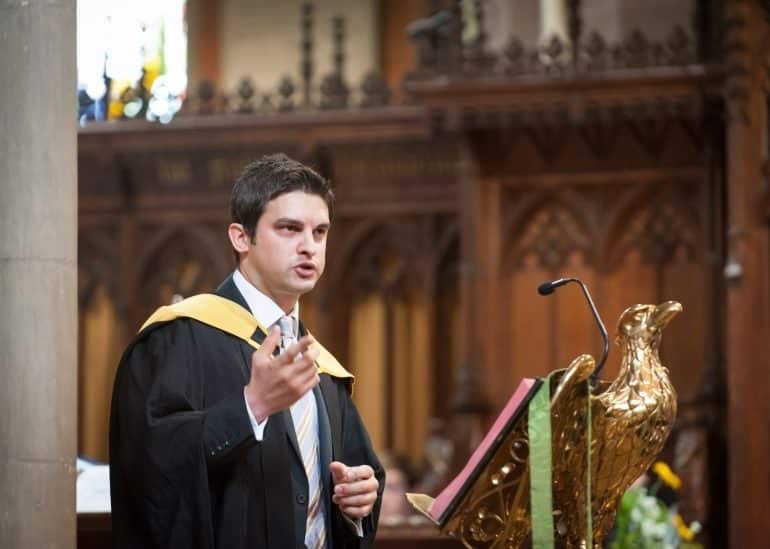Former international swimmer and water polo player leads British Fencing at London 2012

Former QE pupil Piers Martin (1987-1995) is hoping for top podium places for British fencers at London 2012 after leading the transformation of the sport in the UK since 2008.
Recruited to be the Chief Executive Officer of British Fencing and appointed to the National Olympic Committee four years ago, Piers has made full use of his own international sporting experience, which began while he was still at the School.
Piers, who was the guest speaker at this year’s Founder’s Day, service, says: “These last four years have been hard work, but I am now looking forward to an exciting and successful Olympic Games on home soil. We have focused on taking the sport from an amateur committee to a successful business and I hope that will be seen in some gold medals – for the first time since 1956!”
He swam internationally during his time at QE, but then switched to water polo where he played for Great Britain as a Junior and Senior. He was therefore delighted when the School significantly upgraded its swimming facilities in 2006 with the opening of the Martin Swimming Pool, which is named after his father, Barrie Martin, the current Chairman of Governors.
His career path has brought together his knowledge of top-level sport and his business acumen. “As an international swimmer and water polo player, I made a natural move into coaching and tutoring whilst at Manchester University. I then took a job as National Development Manager for Water Polo with the ASA, the governing body for swimming. Although I never intended to stay in the role for long, I found myself there for a while and eventually moved to become a Director, running the North West Region.”
After completing an MBA at Manchester Business School, he remained in the city to take up a role consulting on the UK set-up of the World Academy of Sport – a global programme offering executive education to federations of sport. It was his success in this that led to his recruitment to British Fencing and a return to London.
During his address to the Founder’s Day congregation at Chipping Barnet Parish Church, he spoke of his work with the British Olympic fencing team and highlighted the steadfast dedication necessary to succeed at the world’s ultimate sporting event.
